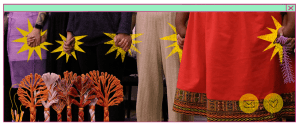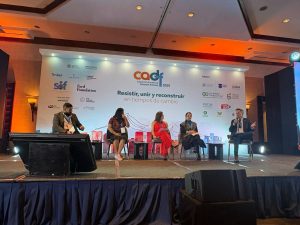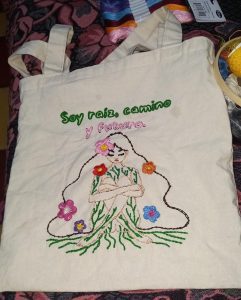
Peasant Women’s Gardens and Markets in Petén:Community Resilience and Climate Justice
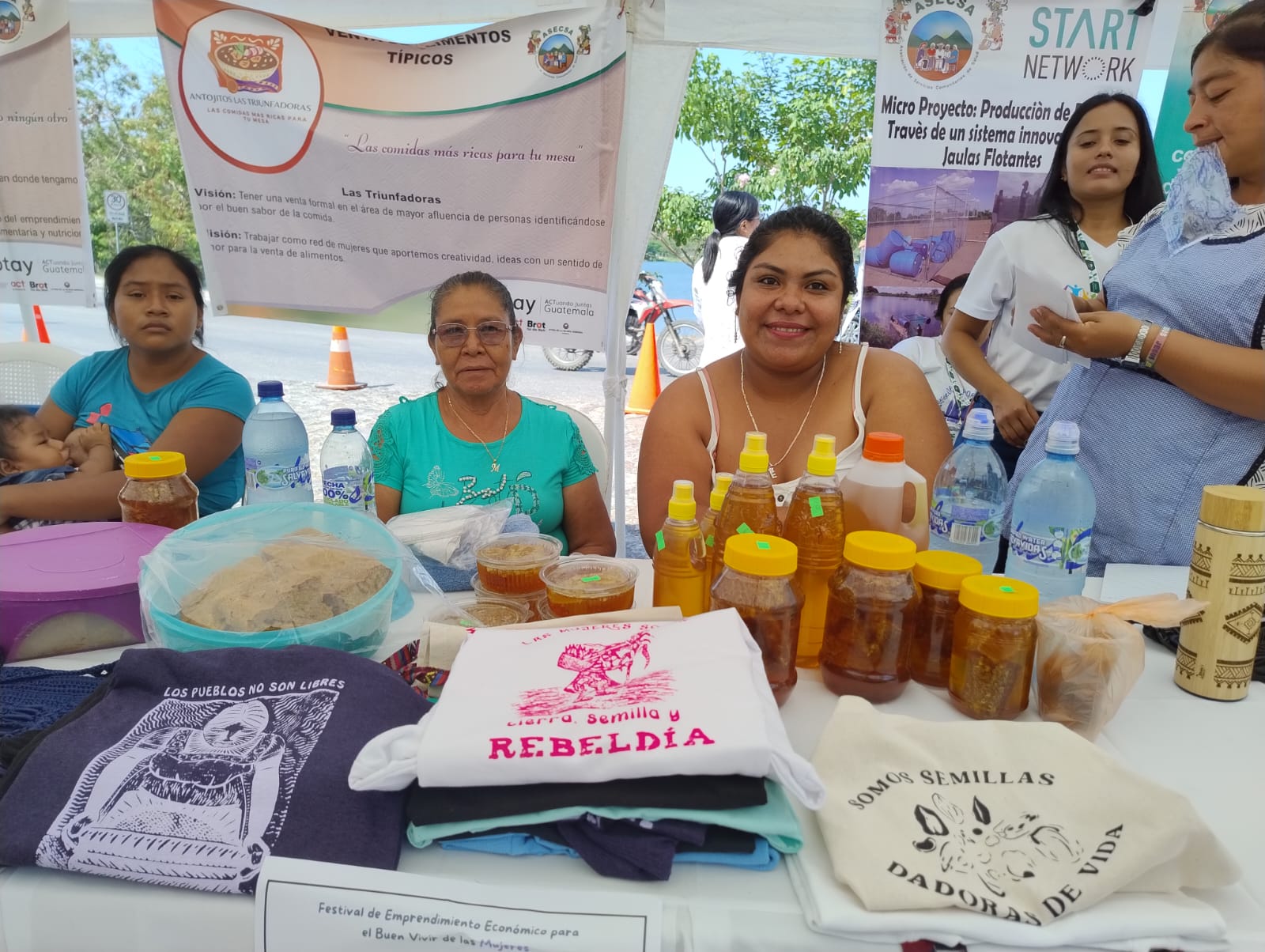
Table of Contents
- Petén vs. climate change and gender inequality
- Community organizing and resistance strategies
- Project strategy and methodology
- Project Results
- Problems identified
- Development and transformation of the local market
- Call to Action
In the heart of northern Guatemala, the Organización de Trabajadores por la Resistencia y la Autonomía (OTRA) promotes community-based processes of social transformation.
This cooperative brings together women and men with diverse organizational, labor, and political experiences. Its mission is clear: to dismantle structures of discrimination, oppression, and exclusion through education, research, and alternative ways of communicating.
Nourished by a deep sense of community, OTRA promotes Buen Vivir as a collective horizon in alliance and coordination with communities and social organizations.
In this article, we aim to bring attention to “Strengthening the Gardens and Markets of Peasant Women in Petén” (2022–2024), a project developed by OTRA with the support of FCAM Foundation.
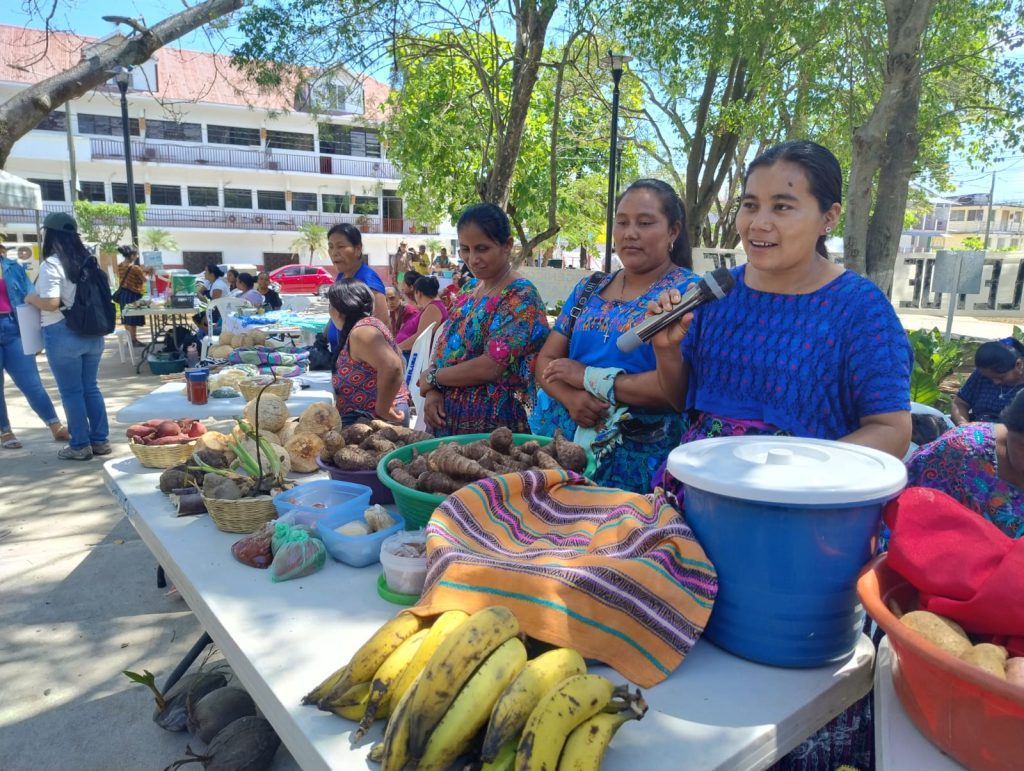
The project strengthens the production and marketing of food and medicinal plants made by rural and indigenous women.
Through training, networking, and political advocacy, these women build local solutions with global impact.
Rooted in ancient Mayan agriculture, the initiative demonstrates that strengthening local communities positively impacts income generation, allowing them to reduce inequality, improve food security and quality, preserve biocultural heritage, and mitigate and adapt to climate change.
Petén vs. climate change and gender inequality
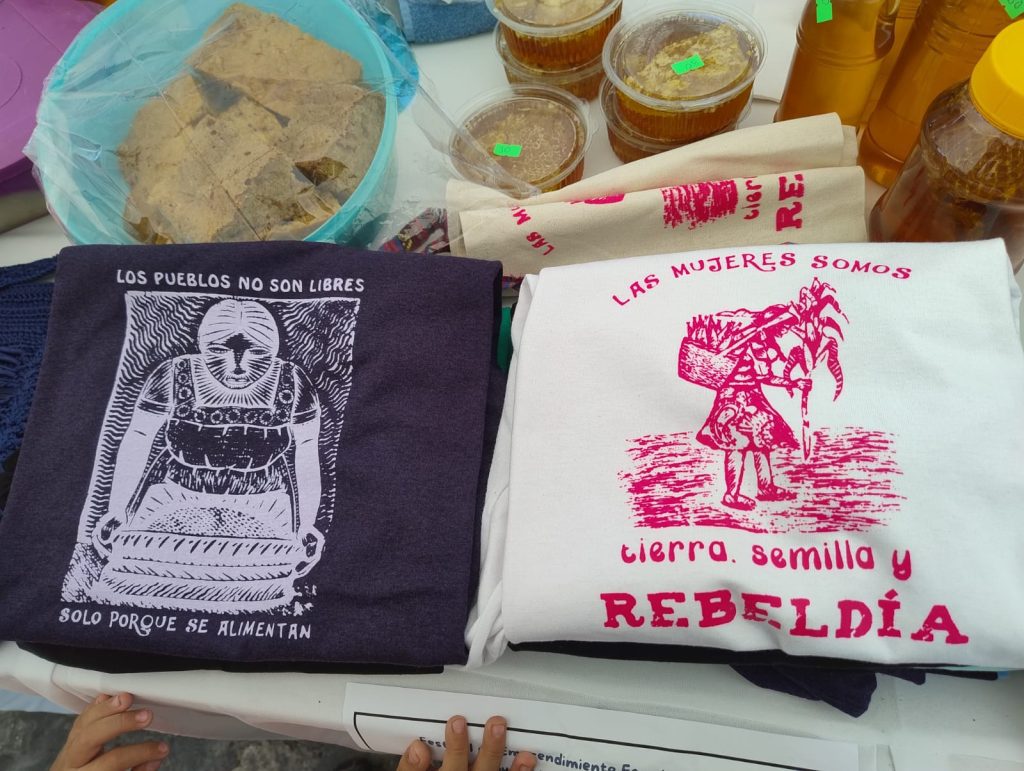
The ecological importance and strategic location of Petén
Bordering Mexico and Belize, Petén is the largest department in Guatemala. It is here that we find the Maya Biosphere Reserve and various protected areas that shelter sites of great natural and cultural importance, which have been recognized by UNESCO.
The growth of monocultures and the loss of biodiversity
Petén is being subjected to the growing expansion of agro-industrial monocultures, especially oil palm.
One of the most affected municipalities is Sayaxché, which bears the burden of 87% of the palm crops in the department.
Despite the speeches promoting sustainable production, the National Council of Protected Areas of Guatemala acknowledges that this type of crop “constitutes a serious threat to biodiversity and an imminent environmental risk for protected areas” (2013, p. 8).
Combined with the harm brought on by the livestock and oil industries, monocultures have led to the massive deforestation of native forests.
In 2019, Petén was listed as one of the most critical areas of forest degradation worldwide, according to a mapping carried out by NASA (Plaza Pública, 2023).
Social impacts and human rights violations
In addition, there have been fraudulent land sales at very low prices, forced and violent evictions, environmental pollution, diversion of rivers used to supply communities with water, and the criminalization and persecution of community leaders.
One of the most affected populations is women, who, as a result, face the most severe consequences of the lack of water and sanitation as well as an increase in gender-based violence.
According to the Secretariat against Sexual Violence, Exploitation and Trafficking in Persons of Guatemala (2022), the municipalities located in the northern and central parts of the country are those that register the highest rates of rape against women and girls.
One of the immediate causes of this increase in violence has been the strategic establishment of bars by high-ranking employees and partners of agribusiness, which has contributed to the rise in alcoholism and drug addiction among young people and adults.
Inequality in access to land
Women also have limited access to land and receive little support from local governments to strengthen peasant agriculture and commerce (Prensa Comunitaria Kilómetro 169, 2023).
With outdated data, the Land Fund reported that, between 1998 and 2014, only 2,225 women (10.7%) received state incentives for the purchase of farms, compared to 18,438 men (89.3%) (Entremundos, n.d.).
Community organizing and resistance strategies
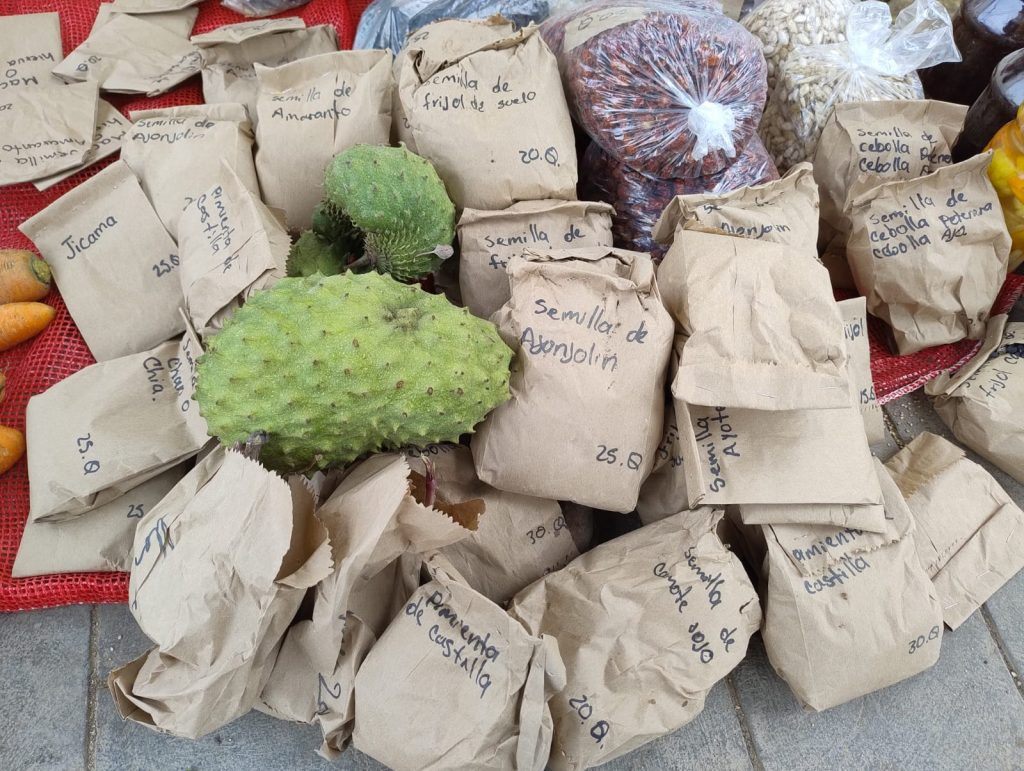
Faced with this context, groups of indigenous and mestizo women from communities in Laguna del Tigre and the Sierra del Lacandón organized to strengthen their ancestral productive practices and environmental preservation strategies, to guarantee food security and quality, and to promote their economic autonomy.
These women plant and harvest organic food and medicinal plants for self-consumption and commerce.
To address the challenges of limited resource access, they grow their crops both on their own land and on rented plots, resorting to the rescue and exchange of native and Creole seeds.
They secure financing through community savings and credit practices, and they sell their products at peasants’ markets.
Furthermore, their knowledge, seeds, and production practices play a vital role in climate change adaptation by promoting resilient crops that preserve, rather than degrade, the environment, thereby supporting reforestation.
They also help promote a diverse and nutritious diet, which is essential for addressing the growing challenges of droughts and extreme rainfall.
Project strategy and methodology
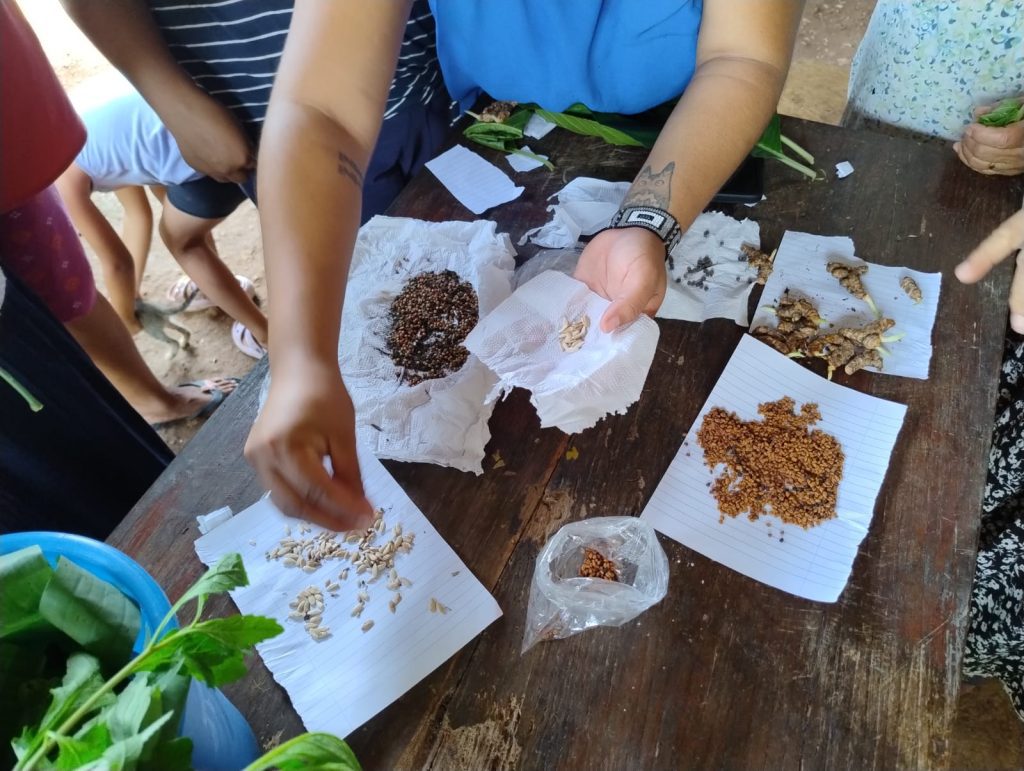
The OTRA Cooperative carried out a diagnostic assessment to identify the key needs of organized women’s groups in Petén.
The aim was to strengthen their initiatives and enhance their impact, with a focus on financial autonomy, food security, and environmental conservation inspired by traditional Mayan agricultural practices.
Based on their diagnosis, OTRA developed 4 axes of action:
- Training for rural women and youth on gender, human rights, climate change, and the agroecological market.
- Support for the marketing of organic foods and medicinal plants produced by rural women.
- Local and national dissemination of the work of the women in Petén and its connection to biological diversity, climate justice, and food security and quality.
- Coordination of actions at the local and national levels.
Project Results
Contributions to adaptation and mitigation:
- Implementation, dissemination, development, and transfer of technologies.
- Effective generation and development of knowledge and learning processes.
- Application of good practices, methods, and standards for women’s climate, food, and economic resilience.
- Increased awareness of climate threats and risk reduction.
Community diagnosis and training:
- Collective local assessments of impact, knowledge, and solutions regarding climate with a gender perspective.
- 28 workshops with the participation of 132 indigenous and mestizo women from rural and urban areas of Petén, as well as members of 6 organizations.
Problems identified
- Changes in rainfall patterns (floods) and drought.
- Loss of crops due to flooding or lack of water.
- Mechanization of agriculture, excessive use of agrochemicals, and an increase in pests.
- Massive use and continued expansion of transgenic seeds.
- Decrease in the nutritional quality of foods produced with agrochemicals.
- Disappearance of spontaneous production of local food species.
- Abandonment and loss of traditional knowledge and practices for climate monitoring and agricultural production.
- Dependence on commercial seeds, rising production costs, and the increasing debt burden on peasants.
- Women lack access to land ownership.
- Labor exploitation, gender violence, and racism.
Reflections from the leaders:
“With climate change, those of us who lack sufficient economic resources have suffered because production isn’t the same as before… It used to rain a lot, but now we don’t even know when it’s going to rain; in other words, the weather isn’t normal.” Community leader from Las Cruces.
“I was involved in a study conducted by REDSAG on GMOs here in Petén… the peasants told us they were very confident in planting native corn for many years, but now there was a large area of genetically modified corn [near their fields] … We made an observation, could they really be confident they were growing native corn? … If I plant corn on my plot, but at the same time there is a farm that is planting large amounts of genetically modified yellow corn, [my] corn will be pollinated… It will be polluted. That’s why we are fighting to protect corn.” Community leader from Las Cruces.
“During the training training, there were women who made decisions by identifying the types of violence [they had experienced]. (…) I see a lot of labor exploitation; there are many women working in banana, palm, or watermelon plantations. It’s very arduous and tiring work for women. We always suffer from labor exploitation and racism. We’re forced to work harder, strain our bodies, and lift really heavy things.” Community leader from Las Cruces.
Development and transformation of the local market
- 12 workshops on economic autonomy with the participation of 132 indigenous and mestizo women from rural and urban areas of Petén, as well as members of 6 organizations.
- Fairs centered around native and Creole seed, food fairs, economic entrepreneurship festivals highlighting Buen Vivir, and peasants’ markets.
- Support and monitoring of the community savings and credit methodology of three rural women’s groups.
- Collective purchase of land with funds obtained through the community savings and credit methodology.
“For me, the community savings and credit methodology is a good working strategy for organizing women in my community and encouraging them to participate, both in the workshops that the OTRA Cooperative has implemented with us as a group and in the occasional spaces for sharing experiences or forming alliances. I want to emphasize that we are also empowering ourselves as women, both with regard to our rights and our economic autonomy.” Member of the K’at Women’s Committee of the Nuevo Horizonte Cooperative.
Call to Action
Support peasant women’s struggle for climate justice!
This project demonstrates that community resilience and agroecology are key to addressing climate change.
Share this story, spread the word about their achievements, and connect with organizations that promote Buen Vivir.
Your support strengthens economic autonomy and the defense of the territories.
Note: This article revisits the case study presented in the publication “Small Investments with Big Impact: Climate Solutions with Gender Justice.”

